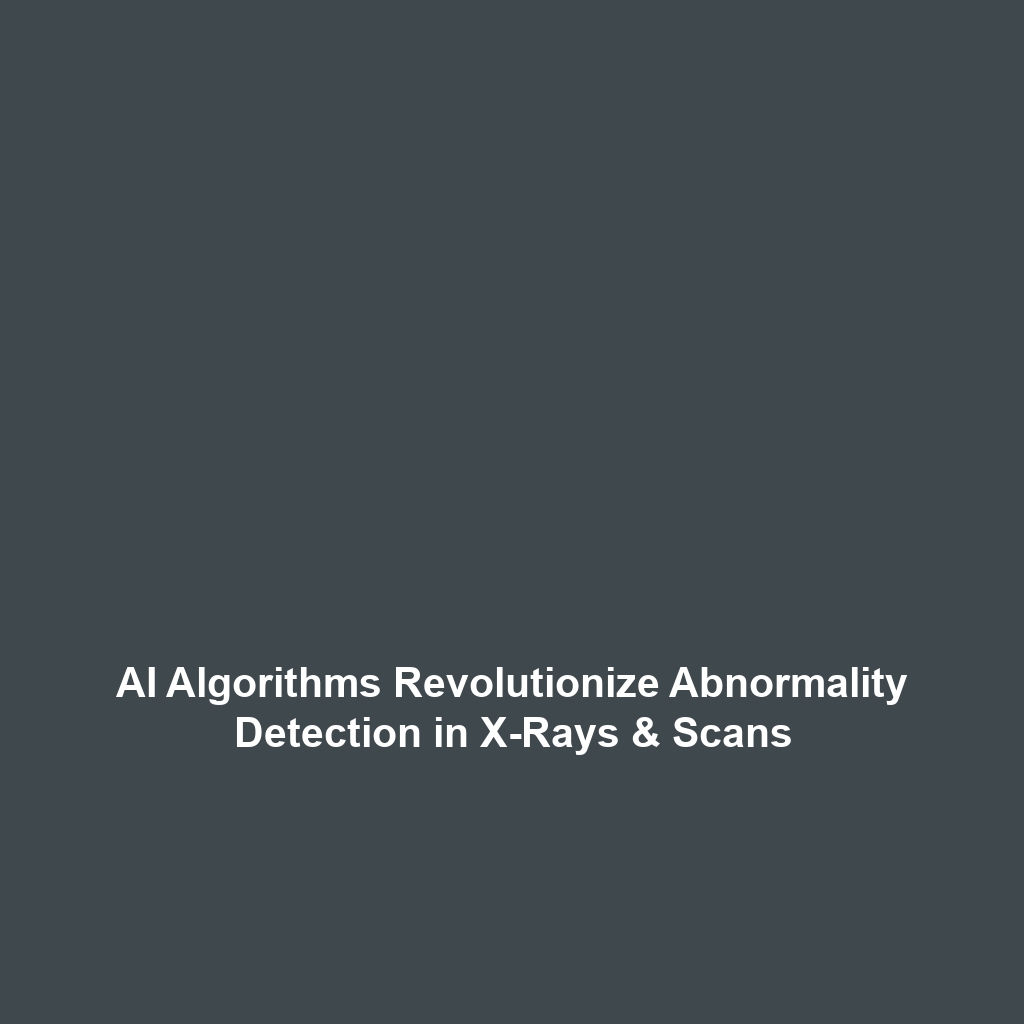How AI-based Algorithms Detect Abnormalities in X-rays, MRIs, and CT Scans
Introduction
The integration of AI-based algorithms into medical imaging is revolutionizing the field of healthcare. By enhancing the accuracy and speed of detecting abnormalities in X-rays, MRIs, and CT scans, these algorithms play a crucial role in patient diagnosis and treatment. This article explores how AI technologies are streamlining medical imaging processes, ultimately promising better healthcare outcomes.
Key Concepts
To understand how AI detects abnormalities in medical imaging, it’s essential to delve into the fundamental principles of AI in healthcare:
- Machine Learning: AI algorithms use machine learning techniques to analyze vast datasets of medical images, learning to identify patterns indicative of anomalies.
- Image Recognition: AI relies on image recognition algorithms to offer highly accurate assessments of imaging results, providing insights that can surpass traditional methods.
- Deep Learning: With deep learning, neural networks can improve their performance on image classification tasks, leading to better detection of cancers, fractures, and other diseases.
The successful application of these concepts underscores the significance of AI in healthcare, placing it in the forefront of diagnostic innovations.
Applications and Real-World Uses
AI-based algorithms are being utilized in various real-world applications within healthcare:
- Radiology Assistants: AI tools analyze radiological images to assist radiologists in identifying abnormalities such as tumors or bone fractures.
- Speedy Diagnosis: AI algorithms facilitate quicker diagnostics, often reducing the time it takes to deliver critical results to patients.
- Predictive Analytics: These algorithms predict potential health risks by continuously monitoring imaging data, enhancing preventive healthcare measures.
These practical applications demonstrate how AI-based algorithms detect abnormalities in X-rays, MRIs, and CT scans within the broader category of AI in Healthcare.
Current Challenges
Despite the significant advancements, challenges remain in the implementation of AI algorithms in medical imaging:
- Data Privacy: Protecting patient data while utilizing extensive datasets for AI training is a major concern.
- Algorithm Bias: AI systems may be biased if the training data is not representative of diverse populations.
- Regulatory Hurdles: Navigating the complex regulations around medical AI technology can slow down development and deployment.
Addressing these issues is crucial for the future efficacy of AI in healthcare diagnostics.
Future Research and Innovations
Looking ahead, several innovations promise to reshape the application of AI in medical imaging:
- Augmented Reality (AR): Integrating AR with AI could provide enhanced visualization of abnormalities in imaging.
- Personalized Medicine: Future AI systems could tailor diagnostic approaches based on individual patient data.
- AI-Driven Workflow Integration: Streamlining AI algorithms within existing hospital workflows could increase their practical utility.
Such advancements represent a substantial leap forward in how AI will redefine healthcare efficiency and outcomes.
Conclusion
AI-based algorithms are transforming the detection of abnormalities in X-rays, MRIs, and CT scans, showcasing their pivotal role in AI in Healthcare. With ongoing research and overcoming existing challenges, the potential for improved patient outcomes is significant. For more on AI applications in healthcare, check our articles on AI Research and Medical Advancements.
